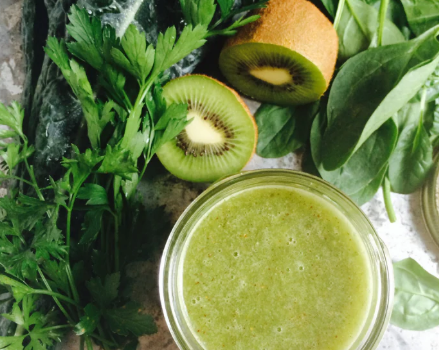
In today’s world, everyone seems to be following different diets and trends, trying to figure out what “healthy” truly means. While there’s a lot of information floating around, many are overlooking two crucial elements: gut health and food sensitivities. Your gut plays a fundamental role in your overall well-being, and understanding how to support it can drastically improve your health.
Understanding Gut Health and Its Importance
The gut isn’t just about digestion. It’s a complex system of microbiomes that influences everything from your immune system to your mood. Did you know that 70% of your immune system resides in your gut? It’s no wonder that the health of your gut impacts many aspects of your body. A balanced gut helps digest fiber, produce essential fatty acids, maintain healthy weight, and even regulate your response to infections. It also has a significant effect on brain function and mental health.
Your gut is home to trillions of bacteria, each playing a specific role in digestion and overall health. Unfortunately, modern diets, stress, and pollution can take a toll on this delicate system, leading to issues like inflammation and food intolerances.
The Connection Between Gut Health and Food Sensitivities
Food allergies and sensitivities can directly affect the health of your gut. When undiagnosed or untreated, they can trigger an inflammatory response in the intestines, damaging the gut flora and causing imbalances. This leads to a cascade of problems such as autoimmune conditions, infections, chronic inflammation, and nutrient deficiencies.
Food allergies disrupt the gut’s ability to communicate properly with the immune system, causing it to react inappropriately to harmless substances. Over time, this can result in more severe conditions like chronic fatigue, brain fog, joint pain, and even autoimmune diseases.
Common Conditions Linked to an Unhealthy Gut
Several autoimmune conditions are linked to food allergies and an imbalanced gut. These include:
- Inflammatory Bowel Diseases (IBD) like Crohn’s disease, colitis, and irritable bowel syndrome (IBS), which are worsened by inflammatory foods such as wheat and dairy.
- Hashimoto’s Thyroiditis, where an immune response attacks the thyroid, often triggered by gluten and other inflammatory foods.
- Coeliac Disease, which is triggered by gluten, damaging the intestines and preventing proper nutrient absorption.
- Psoriasis, a skin condition linked to the consumption of foods like dairy, sugar, and wheat.
- Rheumatoid Arthritis, which can be triggered by food sensitivities to ingredients like tomatoes, potatoes, and eggplants.
The inflammation from these conditions can impair the function of your gut and further compromise your immune system.
Leaky Gut: The Silent Issue
Leaky gut syndrome is a major consequence of an unhealthy gut, often exacerbated by food allergies and sensitivities. This condition occurs when the lining of the intestines becomes damaged, allowing undigested food particles, toxins, and bacteria to leak into the bloodstream. These invaders trigger an immune response, leading to widespread inflammation.
Common signs of leaky gut include:
- Digestive issues like diarrhea, constipation, bloating, and gas
- Poor immune function and frequent illnesses
- Mental fog, headaches, and memory loss
- Skin issues like rashes and eczema
- Joint pain and chronic fatigue
- Mood disorders like anxiety and depression
How to Heal Your Gut
The key to healing your gut lies in identifying food sensitivities and removing harmful foods from your diet. By eliminating foods that cause inflammation and replacing them with gut-healing alternatives, you can significantly improve your health.
Here are some steps to heal your gut:
- Test for Food Sensitivities
Identifying food sensitivities and allergies is the first step toward healing. Services like Everlywell offer at-home testing kits, making it easy to pinpoint which foods may be causing issues. - Add Gut-Healing Foods
Once you’ve identified your triggers, incorporate foods that promote gut health, such as:- Bone broth: Rich in collagen and amino acids that help heal the gut lining.
- Coconut oil: Known for its anti-inflammatory properties.
- Apple cider vinegar: Helps balance stomach acids and supports digestion.
- Grass-fed ghee: Offers a good source of healthy fats that are gentle on the gut.
- Collagen peptides: Support the healing of the intestinal lining.
- Fermented vegetables: Packed with probiotics to boost gut health.
- Pumpkin seeds: Rich in zinc, which is crucial for immune function.
- Avoid Inflammatory Foods
Some foods are known to trigger gut inflammation and should be eliminated from your diet, including:- Processed foods and fast food
- Wheat and gluten-containing products like bread, pasta, and cereals
- Dairy products such as milk, cheese, and yogurt
- Refined oils like canola, sunflower, and soybean oils
- Artificial sweeteners such as aspartame and sucralose
- Sugary drinks and alcoholic beverages
- Hydrate
Drinking plenty of water is essential, especially when increasing your fiber intake or adjusting your diet. Proper hydration helps prevent constipation and supports digestion. - Consider Supplements
Some supplements can support gut health, including probiotics and anti-inflammatory herbs like ginger and turmeric. However, it’s important to consult with a healthcare professional before starting any new supplements.
Conclusion
Gut health is the cornerstone of overall wellness. By understanding how food sensitivities and allergies affect your gut, you can take proactive steps to heal and improve your digestion, immunity, and mental clarity. Through careful diet changes and eliminating harmful foods, you can reclaim your health and well-being. Always remember to listen to your body and consult with a doctor if you’re uncertain about which foods to include or avoid.










